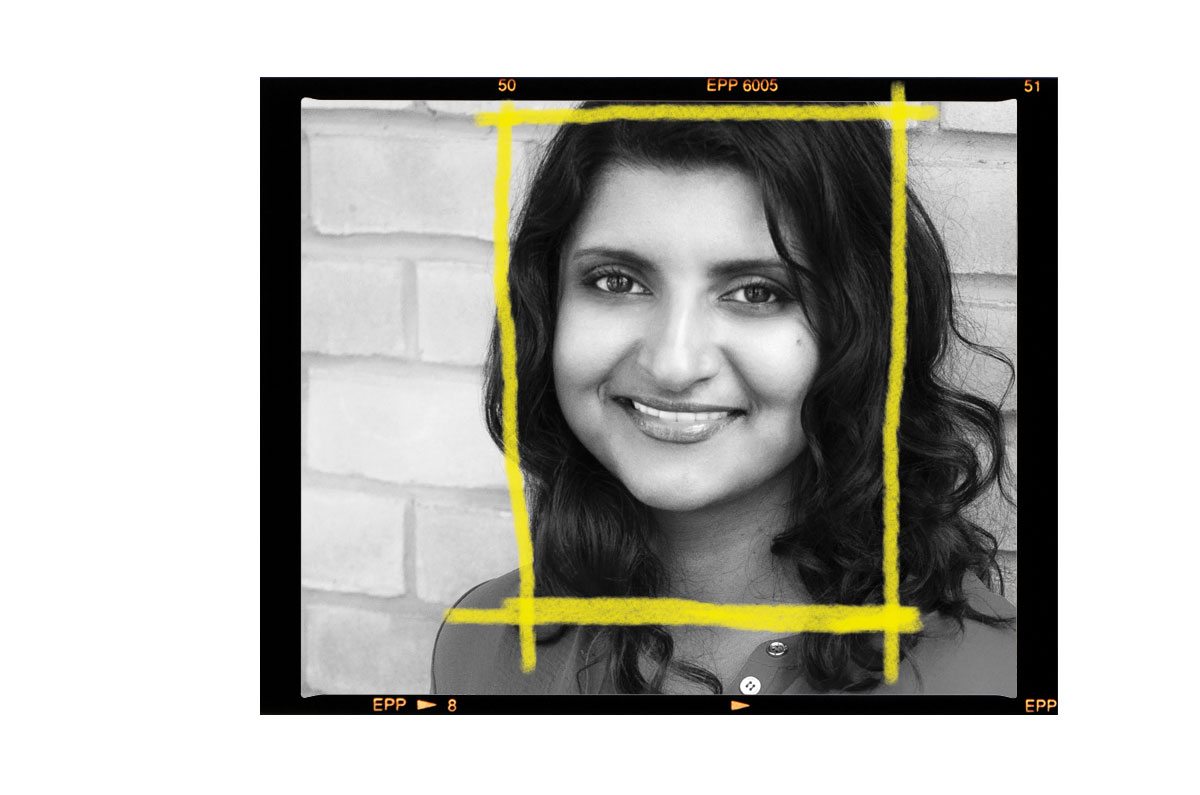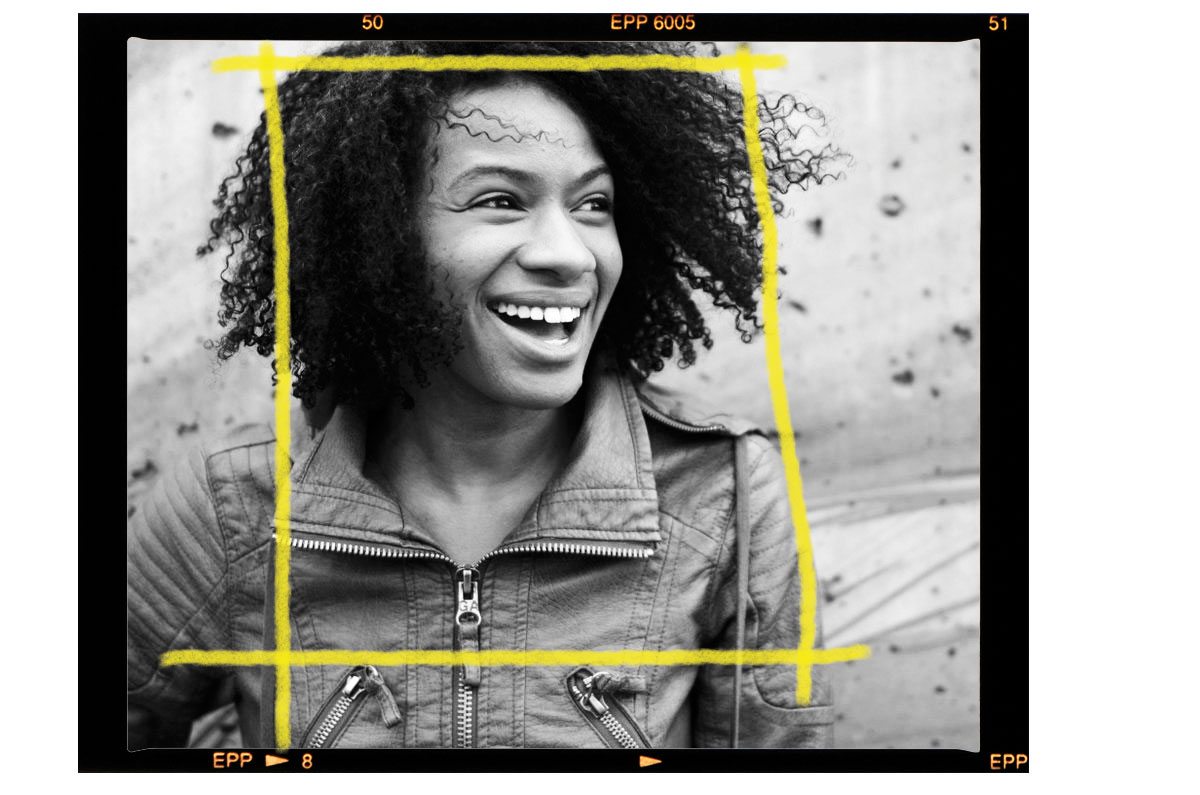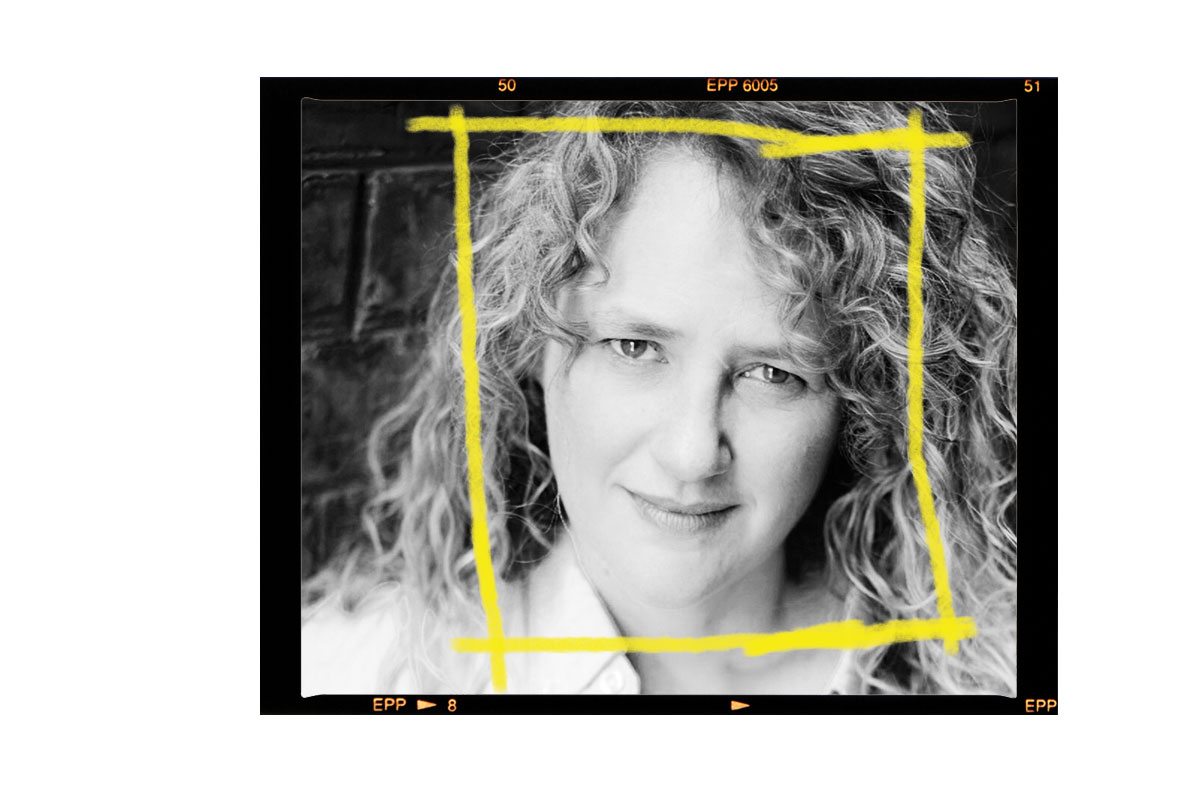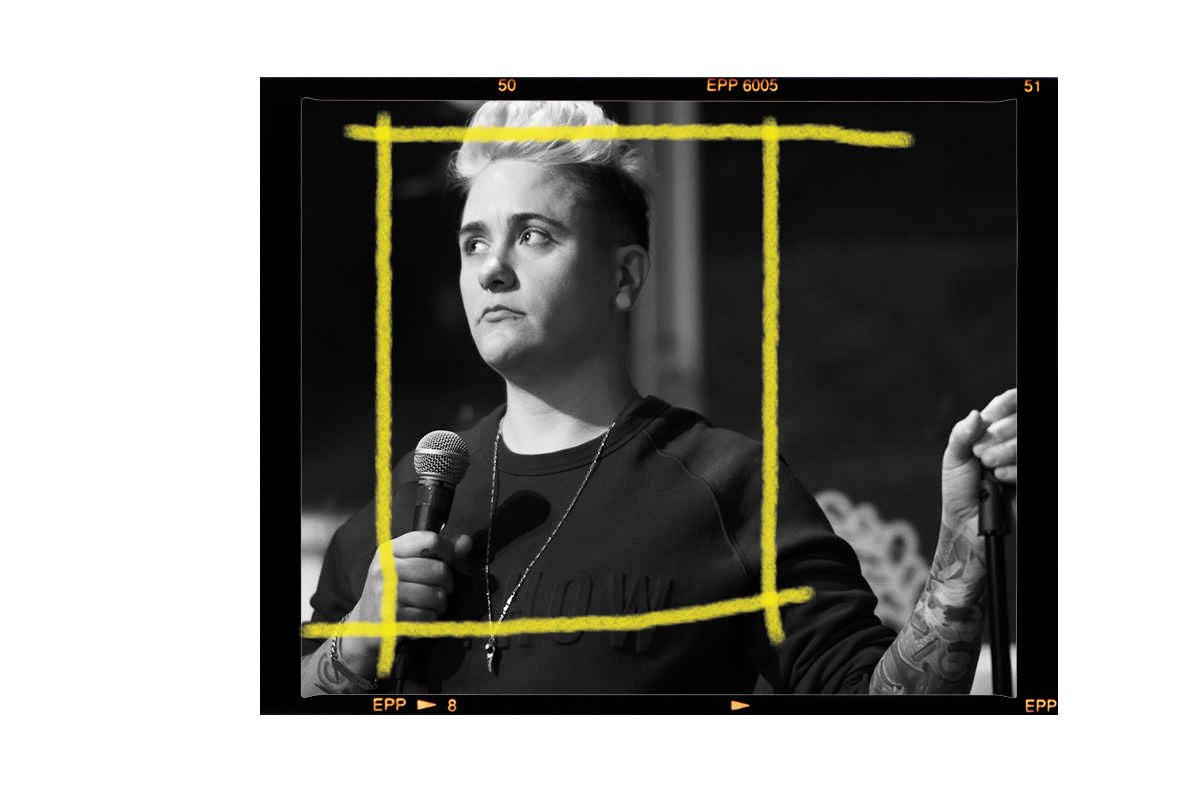Women are Taking over the World of Comedy
It’s Friday night, and Toronto’s Bad Dog Theatre is filling up. It’s a diverse crowd: A middle-aged mixed-race couple make their way to the front, a gaggle of loud white ladies settles into the back section and a crew of bespectacled andro twenty-somethings take over the entire middle row.
Finally, the lights dim and a banging Bollywood track starts up; host Nelu Handa sashays onstage in a colourful print tunic, doing a few goofy Indian dance moves. The Toronto-based comedian grabs the mic. “Me wearing this outfit and dancing like this?” she says. “You’re probably all ‘Ohhhhhhh, this is gonna be an ethnic night. What did I step into?’” And so opens Yas Kween, a monthly comedy showcase featuring women of colour finding the funny in topics like arranged marriage, Islamophobia, racialized violence and clashes with immigrant parents.

The laconic, hijab-clad Hoodo Hersi takes to the stage. Her sarcasm-infused anecdotes are verbal eye rolls at a society that is often unsure of what to do with Muslim women. After a bit about why she would still choose to be black despite how “top-notch” it is to be white, the Toronto-based comedian slowly scans the audience and says: “I see some of you guys don’t want to laugh too loud at that joke. You feel like you’re at a Klan rally or something.”
Next up is the gregarious Aisha Brown, with her wide smile and halo of curls. The Toronto-based comedian details the travails of her boyfriend begging her to experience that whitest of traditions: a visit to the cottage. “Next summer, we’ll try my cultural traditions,” she grins. “So I’m going to take him to the States and he’ll get shot by a cop.”

The coltish Nour Hadidi, who sports thick-framed glasses and comes to Toronto by way of Jordan, follows her. Her earnest, innocent energy belies a wit that slices to the bone when she gleefully threatens to reclaim all the Middle Eastern items—hummus, yoga—that give white girls a personality. “Sorry, Ashley!” she chirps.
Comedy has long been the domain of pasty bros, but that’s changing. On the international stage, we have Ali Wong tackling miscarriage and Asian stereotypes, Tig Notaro joking about her breast cancer and Maria Bamford doing material about having bipolar disorder and OCD. On television, Ilana Glazer and Abbi Jacobson showcase two highly horny women getting theirs in Broad City and Leslie Jones uses the Saturday Night Live “Weekend Update” chair as her pulpit to decry the state of dating when you’re a black woman.
The one thing that unifies this diverse crew is a staunch refusal to play it safe: They are determined to celebrate rather than sublimate their otherhood and make utterly hilarious the experiences that set them apart as outspoken feminists, women of colour, persons with disabilities and mental illness, and queer and non-binary people. In Canada, their counterparts can be found at Yas Kween or one of the other many women-run shows that have become wildly popular. SHADE at the Rivoli showcases female and queer comedians and comics of colour monthly, while LGBTQ shows like Queer and Present Danger, Church Street Comedy and The Merry Janes of Comedy sell out on the reg.
Women Rant at Bad Dog Theatre Company was put together to “create a positive space for us to get pissed off”: Ladies do five-minute vents about whatever is enraging them most, from cultural appropriation and street harassment to the word “needy” and being a single mother; at some shows, a token straight white dude is hired to sit off to the side of the stage and the performers are encouraged to heckle him.
The Crimson Wave, which started off as a podcast about periods, is now a weekly standup show at Comedy Bar that is “feminist-friendly and LGBTQ-positive and features zero rape jokes.” Bechdel Tested is a series of screenings at The Revue theatre of lady-powered movies like Obvious Child and Pretty in Pink with commentary afterwards, and Drunk Feminist Films at The Royal Cinema involves comics taking down nostalgic throwbacks like She’s All That in real time.
More diverse showcases are popping up across the country as well. In Winnipeg, Indigenous comedian Elissa Kixen and writer and comedian Dione Haynes, who goes by xhe and is of Caribbean descent, put on the monthly WOKE Comedy Hour featuring Indigenous women, women of colour and non-binary people of colour.
Vancouver has the weekly QueerProv improv night at XY and The Lady Show, a monthly event that bills itself as “the comedy show that puts the ‘joy’ in ‘feminist killjoy.’” Crazy Bitches is a monthly variety show for femme-identifying folks to perform standup, along with drag and music, in Montreal. And, on Canadian TV, women-created comedies like the CBC’s Baroness von Sketch Show and Workin’ Moms and City’s Second Jen are getting critical raves and even renewals.
The Struggle is Real.
Things haven’t always been so inclusive. Dawn Whitwell is a queer elder stateswoman of Canadian comedy: She has performed at Just for Laughs (JFL) and JFL42 and now hosts her own weekly show, Dawn Patrol, often featuring LGBTQ comics and comedians of colour. The Toronto-based comedian also writes for the Baroness von Sketch Show and has taught hundreds of women standup through her business, Comedy Girl, since 2008. She remembers that back in 2001, work for female comedians was scarce, especially in Canada, since the industry is so small.
“There might have been one job for one woman on television,” she says. “And that one woman wasn’t in a hurry to mentor anyone because that’s mentoring someone to take that one job.” Back then, one of the only gigs in town was Comedy Now, a half-hour showcase on The Comedy Network and CTV. Whitwell called up the male producer and told him that she wanted to do a special. He laughed. So she asked, “How many women are getting specials this year?” “And he literally said to me, in 2001, ‘Dawn, maybe comedy is just a guy thing.’” Whitwell eventually got a Comedy Now special—10 years later.

“Being a woman and being queer in comedy is hard,” says Chantel Marostica, a Winnipeg-born non-binary queer comedian who uses the pronoun they. Marostica has appeared at Just for Laughs and on the CBC radio comedy show The Debaters and now produces the touring showcase Queer and Present Danger out of Toronto. “When I was [coming up] in Winnipeg, there were two other women doing standup, so it felt like we were against one another,” they remember. So they set out for Toronto, but they encountered discrimination. People would come up to Marostica and tell them “It’s good you don’t talk about being a woman during your show” or “Thank you for not talking about being gay.” Marostica was pissed. “So I started embracing it,” they recall. “We should be able to talk about our lives without it being ‘a gay show’ or ‘too feminist.’”
It’s simple, says Brown: The majority of Canada is white and the majority of people doing comedy are men, therefore male comedians are the majority. “It’s always going to be more of a struggle to convince people that your voice is necessary.” She tours the country with Yuk Yuks and is one of only a few black women to get a JFL taping in Canada. Still, audience members will come up to her after a show to tell her “I don’t normally like female comics, but that was fantastic!”
A week after I saw Brown perform at Yas Kween, she opened at The Danforth Music Hall in Toronto for Michael Che, co-host of SNL’s “Weekend Update.” He’s a comic who doesn’t shy away from race, politics and gender. Che’s views are complex, and while he’s mostly progressive, he’s gotten some backlash for his jokes from his left-leaning fans.
You’d think his crowd would share a huge overlap with Brown’s, but when she told the boyfriend-shot-by-a-cop bit, which had gone over relatively well at Yas Kween, it was met with a slight groan. Brown wondered if the joke would have gotten more laughs if she were a man or if she had smiled. “If I tell that joke without a smile, people take it as militant,” she says. “I feel like I probably laugh 80 per cent more than I actually feel like it, just to make people more comfortable with what I’m saying.”
Making it as a non-male comedian requires resilience. Google “Women are not funny” and you’ll bring up Christopher Hitchens’ famous misogynistic screed in Vanity Fair amid articles and Reddit threads titled “Why aren’t female comedians funny?” or “Why are women not as funny as men?” For those spewing such animus online and in person at comedy clubs, the industry’s growing diversity must appear like affirmative action run amok. Marvel Studios head Kevin Feige once said: “Comedy is a meritocracy. If you are funny, you are there. If you are not, you are out.” Ergo, men are funnier, based on their predominance in the scene. And it’s true: Comedy is a meritocracy—in that bland, universal jokes that appeal to the white male majority are granted the most merit because they offend white men the least.
Male audiences are more rattled than amused by some women comedians because the funniest jokes come from issues we care about the most, like sexual assault or body image. Men react to these jokes with horror or disdain or a tossed-off “meh.” And that shrug translates into less stage time for diverse comics. If they do manage to break through, they use every second at the mic to tweak their material, because for every 10 open mics a man gets, they will get one.
Who Run the World? Girls in Comedy.
Men’s supremacy in the comedy world, however, is waning. Networks, studios and bookers have realized there is an audience clamouring for movies, shows and standup nights from women of colour, queer and non-binary people, loudmouth feminists and persons with disabilities.
In August, a woman was crowned the winner of JFL’s prestigious Homegrown Comedy competition for the first time in 19 years. Well, two women: Montreal’s D.J. Mausner shared the honour with Toronto’s Courtney Gilmour. Gilmour, born without forearms or a right leg, performs standup with her mic strapped jauntily to her upper arm; she also triumphed at JFL’s pitch competition, where the show she co-created, Diversity League: Social Justice Division, was green-lit for development with CBC Digital Originals.
Yas Queen’s Handa is able to make a living doing comedy full-time, writing for Baroness von Sketch Show and Workin’ Moms, teaching improv classes to people of colour and acting as a diversity consultant for comedy organizations. “Now, we can go into those audition rooms and feel more confident because we’re representing something that casting agents are looking for: diversity.”
Canada’s booming immigrant population is also nurturing a new generation of funny women. “As more people come here and have kids, and their kids juggle their parents’ racial, cultural and religious identities and what it means to be Canadian, they create more art,” says Hersi, who has contributed to VICE, Essence and Hello Giggles and is herself the daughter of immigrants from Djibouti and Somalia, while Handa is Indian and Brown’s family hails from Jamaica. “And then, with time, you’ll start to see more diversity in the arts.”
Sixteen years after she was told that comedy was just a guy thing, Whitwell accepted, alongside her six female co-writers, the 2017 Canadian Screen Award for Best Writing in a Variety or Sketch Comedy Program or Series for her work on the Baroness von Sketch Show. “I’ve been thinking,” she says, “about how it would have been to be starting out in a scene like this, because—” There is a long pause on the line. “Oh, man. I’m gonna cry.” And she does, weeping as she describes how young women thanked her after the ceremony.
Producing Queer and Present Danger and performing in the LGBTQ show Church Street Comedy, Marostica has also found the comrades and collaboration they sought so long ago in Winnipeg. “Comedy is a boys’ club, but it can also be a girls’ club or a persons’ club,” they say.
You are not Alone.
In Career Suicide live at JFL42, comedian Chris Gethard said doing a comedy show is like being at church: The bond between storyteller and listeners is sacred. Marostica felt this union when they did a one-person show in Winnipeg about their mood disorder and coming out. Afterwards, people kept telling Marostica how thankful they were to learn they weren’t the only person who was gay in the Prairies and how they had tried to kill themselves, too. Now, Marostica jokes about being non-binary and their plans to get top surgery. “When we diversify our shows, we make room for people who feel marginalized,” they say.

I felt this alchemy at the Crimson Wave. The week I attended the show at Comedy Bar, Toronto-based hosts Jess Beaulieu and Natalie Norman were taping an album of period jokes. Women and men were packed in tight, listening to six women—and one slam poetry duo—joking about their monthlies. “People complain about female comics doing period jokes, so we thought we’d leeean in,” said Beaulieu. “You’re famous!” Natalie bellowed into Jess’s crotch. How much can you say about periods? A lot.
Wild-eyed queer Toronto-based comedian Ashley Moffat shared the story of how her single father gave her $60 each month in lieu of any other guidance. Norman spilled about losing her virginity mid-period on a pullout couch at age 27 and about how “So much blood!” is the last thing you want to hear post-coitus. When I left, my stomach hurt and my face ached from smiling. It is the closest I’ll ever get to religious ecstasy.
That’s the power of laughter. It can even make converts of the skeptical, the cruel and the prejudiced. Hersi tells me how she recently performed in a comedy show themed around peace in Israel/Palestine. Afterwards, an elderly Jewish woman came up to her. “I just wanted to let you know that when you first got up there, I was uncomfortable,” she said. “And then you made me laugh.”
The post Women are Taking over the World of Comedy appeared first on FASHION Magazine.